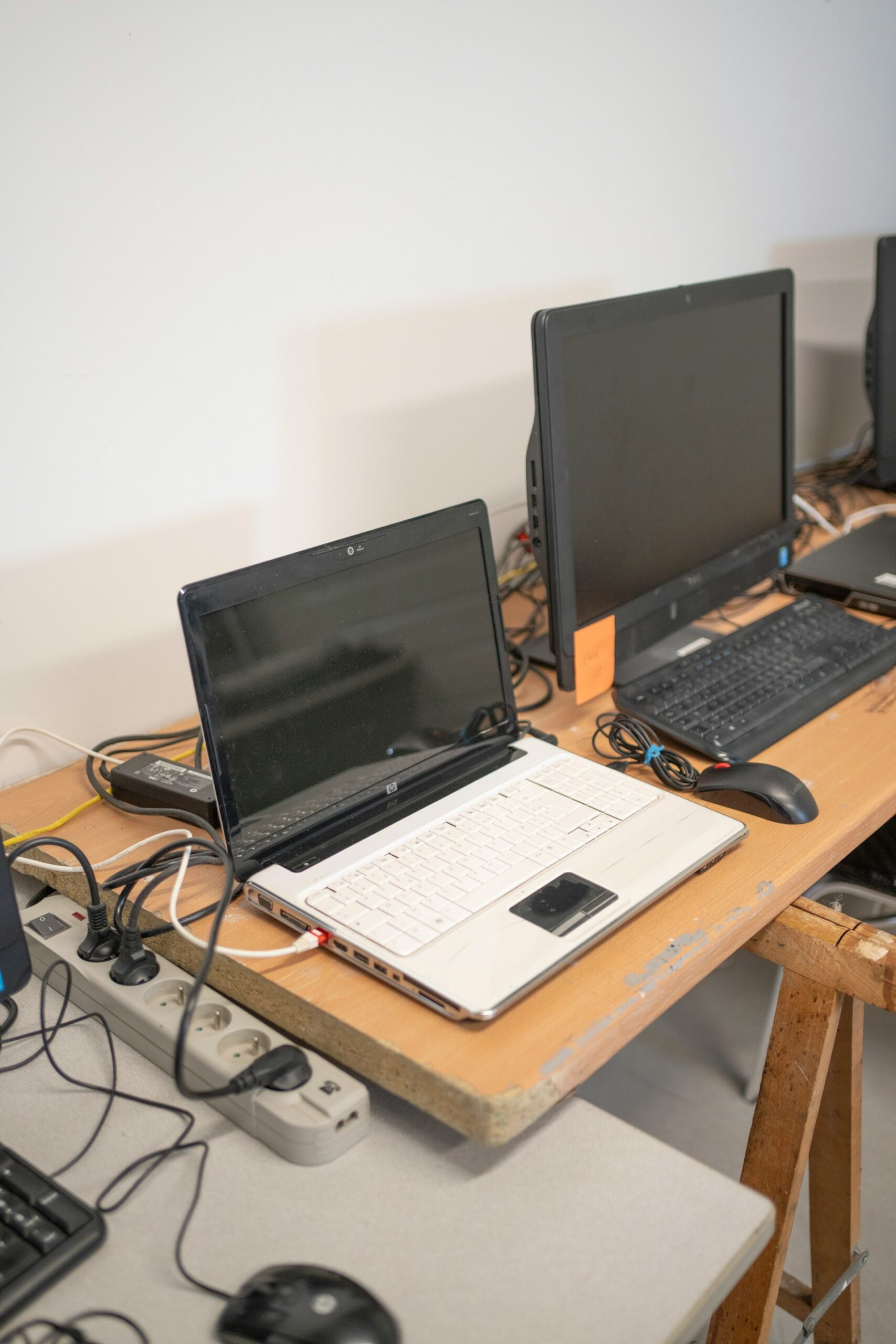
Can We Use Computer Hard Disk in CCTV DVR? Here’s the Expert Truth You Should Know
If you’ve ever set up or upgraded your CCTV system, you’ve likely asked yourself this question:
“Can I use a computer hard disk in my CCTV DVR?”
At first glance, it seems like a smart cost-saving idea — after all, both are hard drives, and they store data, right? But after working in CCTV and security systems for over a decade, I’ve seen firsthand how the type of hard drive you choose can make or break your surveillance setup.
In this detailed guide, I’ll explain the differences between computer and CCTV hard disks, what happens when you use the wrong one, and my professional advice on what’s best for long-term reliability.
Let’s get into it.
1. Understanding the Role of a Hard Disk in CCTV DVR Systems
To start with, every CCTV DVR (Digital Video Recorder) is designed to record and store video footage from multiple cameras simultaneously — 24 hours a day, 7 days a week.
This means the hard disk inside your DVR is constantly reading and writing data without rest. Unlike a regular computer hard disk, which may only be active a few hours a day, a CCTV drive must handle:
-
Continuous high-speed video recording
-
Overwriting of old footage
-
Simultaneous access from multiple channels
Because of this workload, manufacturers developed surveillance-grade hard disks, purpose-built for 24/7 operation and optimized for sequential writing of large video files.
A computer hard disk, on the other hand, is optimized for random read/write operations — opening files, running applications, multitasking, etc. It’s not designed to record non-stop video streams.
This fundamental difference is where most problems begin.
2. Can You Use a Computer Hard Disk in a CCTV DVR?
Technically, yes, you can. Most DVRs will detect and even format a standard computer hard disk (like a desktop HDD). It will work initially — but the real issue is how long and how reliably it will work.
Here’s the reality:
A computer hard disk might perform adequately for a few weeks or months, but because it’s not designed for continuous recording, it usually:
-
Overheats faster due to constant operation
-
Develops bad sectors more quickly
-
Fails earlier, often without warning
-
Corrupts video files, making crucial footage unrecoverable
So while you can use one in a pinch, it’s not recommended for anyone who values their security footage.
Personal Insight:
Years ago, one of my clients installed a regular 1TB desktop HDD in their DVR to save costs. It worked fine for three months — until one day, the DVR stopped recording. When we checked, the disk had multiple read/write errors. They lost a week’s worth of footage right when an incident occurred. That experience taught them (and me) an unforgettable lesson: never compromise on the right drive for surveillance.
3. Key Differences Between Computer Hard Disks and CCTV Hard Disks
Let’s break it down clearly so you can see why the difference matters.
| Feature | Computer Hard Disk | CCTV (Surveillance) Hard Disk |
|---|---|---|
| Purpose | General computing tasks | Continuous video recording |
| Operation Time | 6–8 hours/day | 24/7 continuous |
| Firmware Optimization | Random read/write | Sequential write (optimized for streaming) |
| Reliability | Moderate | High (designed for constant load) |
| Heat Management | Standard | Advanced thermal control |
| MTBF (Mean Time Between Failures) | Lower | 3× higher on average |
| Error Recovery | Aggressive (stops to correct) | Non-intrusive (records smoothly) |
| Lifespan in DVR | 3–6 months typical | 3–5 years typical |
In short, surveillance hard disks are built differently at both the hardware and firmware levels.
They are tested for higher workload rates (typically 180TB/year or more), while desktop HDDs handle around 50TB/year — a massive difference when you’re recording 24/7.
4. What Happens If You Use a Computer Hard Disk in a CCTV DVR
Here’s what I’ve personally seen go wrong when people try to use computer HDDs in CCTV systems:
1. Overheating and Drive Failure
Since desktop HDDs aren’t designed for constant operation, they heat up quickly inside DVR enclosures, which usually have limited ventilation. This causes internal components to degrade prematurely.
2. Recording Lag or Frame Drops
When DVRs can’t write data fast enough, you’ll notice dropped frames or gaps in footage — especially during motion events.
3. Corrupted or Unreadable Video Files
If the hard disk develops bad sectors, recorded videos become inaccessible. In many cases, even data recovery tools can’t restore them.
4. Reduced DVR Lifespan
A failing HDD often puts stress on the DVR’s power supply and processor, potentially shortening its own lifespan too.
5. Warranty Issues
Some DVR manufacturers specify that warranty is void if a non-surveillance-grade HDD is used, especially in professional setups.
Example from Experience:
In one warehouse setup, a customer insisted on using standard PC hard disks. Within 6 months, 2 out of 4 drives failed. Once we replaced them with Seagate SkyHawk drives (surveillance-grade), the system ran flawlessly for years.
5. How to Check If Your Current Hard Disk Is Suitable for CCTV
If you’re unsure what type of HDD you’re currently using, here’s how to check:
-
Open your DVR’s storage settings – it will show the brand and model of the drive.
-
Google the model number. For example, “WD10EZEX” is a desktop drive, while “WD10PURX” is a surveillance-grade one.
-
Check the drive label. Surveillance drives often include terms like “SkyHawk,” “Purple,” or “Video Streaming HDD.”
If your DVR is using a desktop or laptop hard disk, I strongly recommend upgrading to a surveillance HDD before it fails.
6. What Type of Hard Disk Should You Use Instead?
The best option is always a surveillance-grade hard disk — drives engineered for 24/7 video recording, like:
-
Western Digital Purple Series
-
Seagate SkyHawk
-
Toshiba S300 Surveillance HDD
These drives come in various capacities (500GB–10TB+) and are specifically tested to handle multiple video streams at once, reducing frame drops and improving reliability.
Key Benefits of Using a CCTV Hard Disk:
-
Continuous, reliable recording
-
Quiet and cooler operation
-
Longer lifespan (up to 5 years in constant use)
-
Minimal data loss during power interruptions
In other words, they’re built for the job your DVR is doing every single second.
7. When You Might Temporarily Use a Computer Hard Disk in a DVR
There are only a few situations where using a computer HDD makes sense:
-
For testing a new DVR setup (short-term use)
-
When waiting for a surveillance HDD replacement
-
For low-duty home systems (1–2 cameras, not 24/7 recording)
If you must use one temporarily, make sure to:
-
Keep the DVR in a cool, ventilated area
-
Check the disk health weekly
-
Avoid continuous recording; use motion-based recording instead
But again — treat it as a temporary workaround, not a permanent solution.
8. How to Replace a Computer Hard Disk with a CCTV Hard Disk
If you’ve decided to make the switch, here’s a simple step-by-step process (which I’ve done dozens of times):
-
Power off your DVR completely.
-
Open the DVR case carefully.
-
Disconnect the SATA and power cables from the old HDD.
-
Install the new surveillance HDD (make sure it’s compatible with your DVR).
-
Reconnect the cables securely.
-
Power on the DVR and format the new drive through its menu before recording.
- Read More : cctv camera on rent near me
It’s a 10-minute job that can save you years of potential data loss and performance issues.
Conclusion: Should You Use a Computer Hard Disk in a CCTV DVR?
Let’s settle it once and for all — yes, you can use a computer hard disk in a CCTV DVR, but no, you shouldn’t if you care about reliability.
A computer HDD isn’t designed for the round-the-clock stress that video surveillance demands. It might seem to work initially, but sooner or later, it’ll fail — often at the worst possible time.
If your security footage is important (and it usually is), invest in a CCTV-specific hard disk. The difference in cost is minor compared to the peace of mind and reliability you gain.
Pro Advice:
Always choose the right tool for the job. Surveillance-grade hard drives are the backbone of a reliable security system — and they pay for themselves by preventing downtime and data loss.
FAQs
1. Can I use my laptop or desktop hard disk in a CCTV DVR?
Yes, you can, but it’s not recommended. Laptop and desktop drives aren’t designed for continuous recording and tend to fail faster under constant load.
2. How long does a computer hard disk last in a CCTV DVR?
Usually between 3–6 months, depending on usage. After that, performance degrades, and the risk of data corruption increases.
3. What’s the best hard disk for CCTV DVRs?
Use surveillance-grade drives like WD Purple, Seagate SkyHawk, or Toshiba S300. They’re engineered for continuous operation and offer long-term reliability for video recording.
